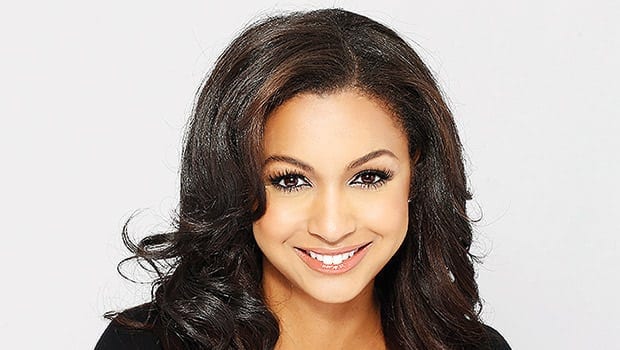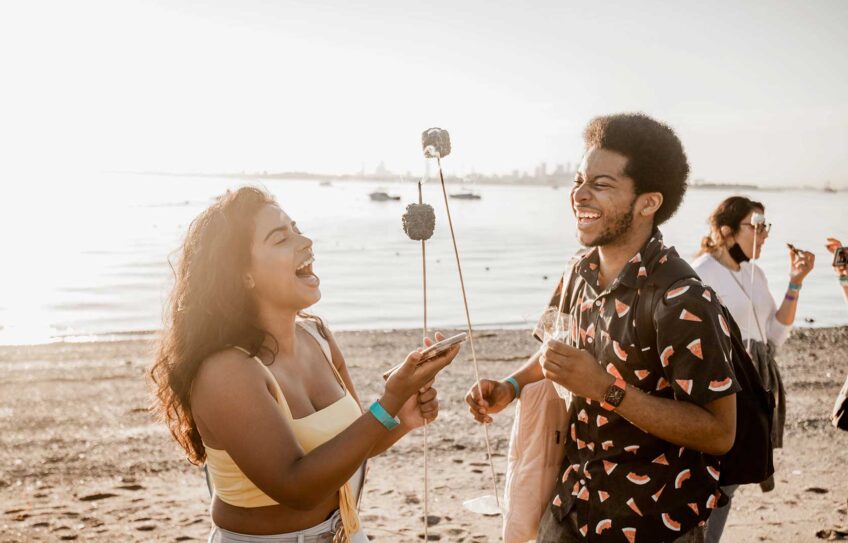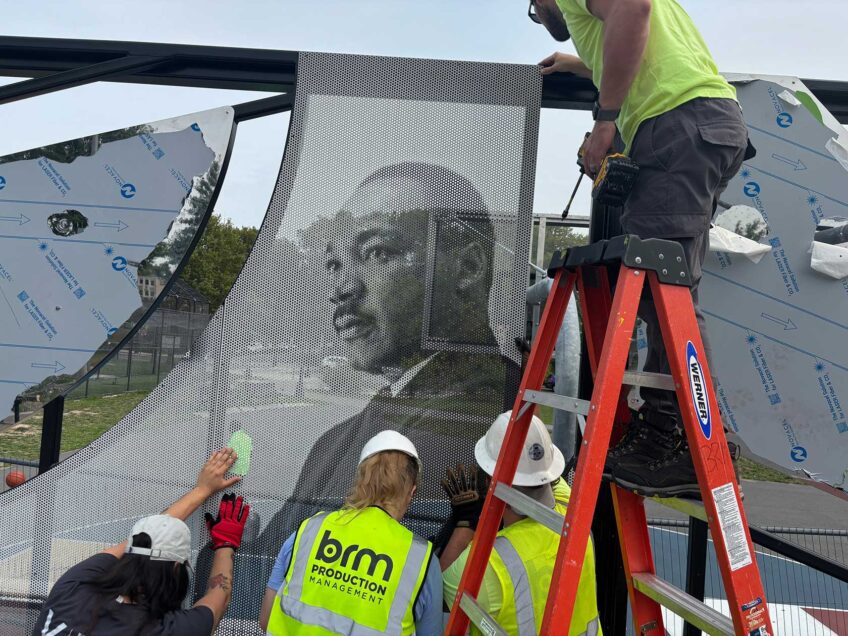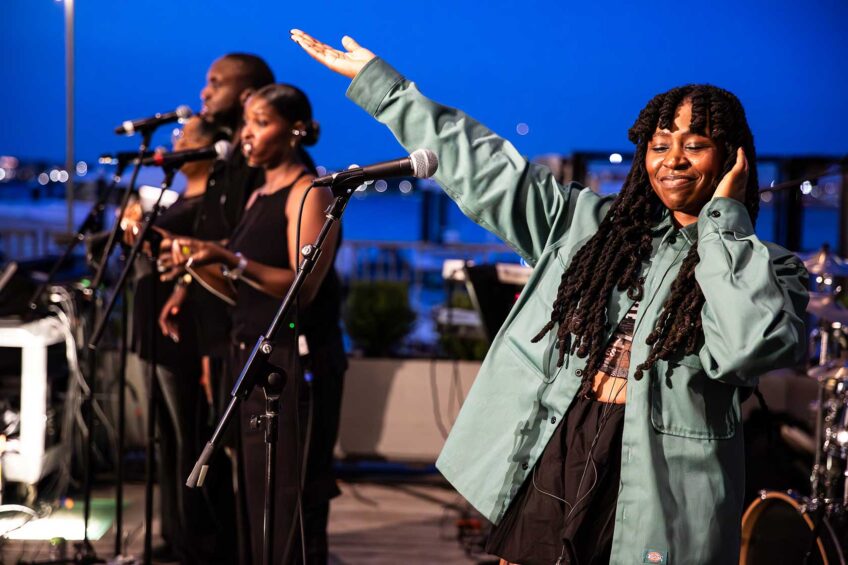Political commentator Eboni K. Williams discusses the 2016 presidential election

Eboni K. Williams is a political and legal commentator you can catch on numerous FOX News programs, such as “The Sean Hannity Show,” “The O’Reilly Factor” and “The Kelly File.” She also frequently serves as a co-host on “Outnumbered” and “The Five.” Prior to joining Fox, she worked as a correspondent at CBS News, as a contributor at the HLN network and as a talk show host in L.A. on radio station KFI.
Raised by a single-mom, Williams received a B.A. in Communications and African American Studies from the University of North Carolina at Chapel Hill, and her J.D. from Loyola University College of Law in New Orleans. She began her professional career in Louisiana, clerking for the secretary of state and the attorney general’s office as a law student. She worked for various politicians, including assisting city council members in the New Orleans rebuilding effort in the wake of Hurricane Katrina. .
Williams subsequently specialized in family law and civil litigation, providing legal counsel on high-profile divorce, spousal support and child custody cases. In 2008 she transitioned to public defender before returning to private practice in 2010. Over the course of her career in criminal defense, Eboni represented clients in murder, rape, drug, sex crime and federal offense cases.
Here, she shares her thoughts about the election of Donald Trump.
I have to start by asking what was your immediate reaction to the election results?
Eboni Williams: Well, like most Americans, including Trump supporters and probably Donald Trump himself, I was surprised. I was surprised because the data leading up to the election didn’t show a lot of ways that this could happen. But a year ago, even six months ago, I did see the potential for this outcome. In fact, I bet a lawyer friend of mine a steak dinner that Trump would win, specifically, by changing the electoral map in Rust Belt states with industrial populations like Indiana, Pennsylvania and Michigan. So, I saw the potential for a Trump victory, but as the campaign went on, I felt that he was his own worst enemy. Even back during the primary season, I said the only person who can beat Donald Trump is Donald Trump. Though he prevailed in the primaries, I thought he’d done enough damage to himself to take himself out of the game. But, on that point, I was wrong. He had a lot of different messages, but I would say the one that registered with most voters I spoke to was “Drain the swamp!” It was a forceful call for change and indictment of everything that’s been going on in Washington for several decades now. America’s just sick and tired of the gridlock in Congress and of the inaction at every level of government. People found Trump’s message of change to be such a complete antidote to that and so compelling that they wrote this man a blank check. Think of all the things he could do and not lose their support. Whether it was the Access Hollywood tape or statements he made about communities of color or what not, people ultimately chose to overlook it, because they so believed in his ability to be a change agent.
I heard you say the other day that your own mother voted for Trump.
EW: My mother has been on the Trump train since day one. And even though I, like many in the media, might not have seen the likeliness of Trump’s success as far back as the primaries, her being such an avid Trump supporter from the start did help me keep my finger on the pulse. What many people felt was most important to them was change in Washington.
Tell me a little about your mom.
EW: She’s a small business owner and the only parent that raised me. Everything I am I owe to her. She’s a brilliant businesswoman, not formally educated. But she has incredible instincts when it comes to business and leadership. She gives me counsel all the time in my career and other dealings. And look, she called the election. She said, “You know what? He’s imperfect… He brags… He’s even rude… I’m totally appalled by some of the things he says about brown and black people and by the way he describes our community. However, I really like and appreciate his toughness, his authenticity, his authenticity and his leadership qualities.” She likes his prosperity and that he was unapologetic about finding ways to escape paying personal and corporate income taxes. And clearly, a lot of other Americans felt the same way.
How would you describe yourself politically? Most African American commentators on Fox are either way to the left or way to the right, but with you, it’s hard to discern where you stand.
EW: I am a proud, registered independent. I have voted for candidates from both the Democratic and Republican Parties. I was a two-time Barack Obama supporter. In this election, I wrote in a candidate. I rejected both of the major party candidates, and I wasn’t impressed by any of the third-party candidates. I’ve been very clear about the fact that my politics don’t follow party lines. They follow policy. I’m a lawyer by trade, and I’m particularly concerned about policies that make life better for communities I feel are underrepresented … whether that’s communities of color … women … or young people. But I’m really concerned about all people, because we’re all Americans, and I want opportunity for all of us. “Opportunity” is the key word. I think the Democratic Party really got it wrong when they started describing their economic policy in terms of “income inequality.” Well, in my playbook, income should reflect work effort which is not always equal. We don’t all work the same, so why should all of our incomes be the same? What I think is fairer is “opportunity equality.” What we all should be afforded is the opportunity to determine our own income. That is very important to me.
What did you think of Trump’s “What have you got to lose?” appeal to the black community?
EW: Did he make that urban renewal proposal for black votes or did he do it for white people who might have worried whether he might be racist? Maybe we’ll never know. But now that he’s about to become president, we’ll find out real quickly how sincere he was about those policy proposals. As a first-generation college graduate, I’m deeply concerned about his education agenda. I’m very much about school choice, because my mother pushed, pushed, pushed for me to have the very best public education opportunity, since she was a single mom and couldn’t afford much better. I’m also about vocation, because she became a successful business owner after putting herself through beauty school and opening a beauty salon. And she now owns a trucking company, and employs people in her community who are CDL licensed truck drivers. So I know vocational training works and I believe in it wholeheartedly, because I’ve seen it in my own life. And I am offering myself up to be a part of President-elect Trump’s plans around bringing school choice and vocational training and any other betterment opportunities to inner-city communities. I’m very much about that.
What do you make of all the demonstrations and the tidal wave of fear of Trump we see among minorities in the wake of the election?
EW: It doesn’t surprise me at all. I knew, just based on my social media network which is diverse but probably predominantly African American, that there was a strong, visceral reaction against Donald Trump leading up to the election. So, I’m not surprised to see people literally crying, mourning, protesting or saying “He’s not my president.”
Why is it that you don’t seem as frightened of him as so many other African Americans?
EW: Maybe it’s the lawyer in me, maybe I’m just a more pragmatic person. In the same way that I could fight a district attorney tooth-and-nail, and 30 minutes later hammer out a very favorable, plea bargain agreement for my client, I am happy, willing and able to work with this new president.
Do you think the press, in general, went overboard in demonizing Trump and his constituency instead of taking his candidacy seriously?
EW: Yes, I think the press did themselves a huge disservice by making a mockery of his candidacy. It’s ironic that this was a billionaire with an Ivy League education who came from a rich family, and he was allowed to fashion himself throughout the campaign as a self-made man of the people.
As a blue-collar billionaire.
EW: Absolutely! It’s really quite fascinating when you think about, especially when you consider how his wealth was really the death of Mitt Romney’s presidential campaign in 2012. But in 2016, we had media that came off as very smug, elite, self-righteous and all-knowing. And the media attempted to tell America that Trump was not to be taken seriously. The Huffington Post even went so far as to refuse to cover Trump in the political section of the website, because it decided he belonged in the entertainment section. I think that strategy completely backfired. It only served to fuel Donald Trump’s candidacy, because Americans really resented being talked down to.
What inspired your transition from lawyer to journalist?
EW: My favorite thing about being a lawyer was being a voice for the voiceless because, as you have probably noticed, I have a loud voice and a lot to say. But effecting change inside our judicial system is a very slow process, because you can pretty much only do one case at a time. So, I switched to journalism in order to be able to continue advocating for the underdogs but on a macro level. What better way to do that than by getting into media where instead of effecting change one client at a time, I could hopefully do it for thousands or even millions of people.
What was the best decision you made to advance your career, moving to FOX News?
EW: I don’t know. I didn’t really seek out Fox. Fox came to me while I happened to be covering the George Zimmerman verdict for radio. Someone with “The O’Reilly Factor” happened to hear my segment and asked me to come on the show that night to discuss my reaction to and legal analysis of the verdict. I had never seen “The O’Reilly Factor” before I went on the show, so I didn’t know enough to be intimidated, though I quickly learned. But I really, really enjoyed my interaction with Bill. I was on with him and another gentleman. We had a very candid discussion about a delicate but critically important topic. And after that night, I was hooked. That’s really how my association with Fox came about, and I’ve been doing Fox News and Fox Business all the time ever since. It’s not all roses and sunshine, but I really appreciate Fox for the opportunities that I get to go on. And no one has ever told me what to say or what position to take. I’m there to present positions that make good, common sense to me, and to bring clarity where I can share my expertise as an attorney and policy maker.
What’s fun about watching you is that you’re not predictable.
EW: I know for a fact that I frustrate many of my colleagues, because they feel that I don’t represent a true liberal, or that I am not a conservative. That frustrates them, because they don’t know how to engage on-air with me sometimes. I simply push back against the idea that it’s my job to represent a really liberal point of view when, like on “The Five,” I’m the most liberal person appearing on a panel alongside four conservatives. I say, “I’m not here to represent liberal views. I’m here to represent myself. And if you trust me, my goal when I’m on any show, is to add something unique, specific and nuanced to the conversation.
Lastly, as a woman and as a reporter, what is your analysis of Hillary Clinton’s failure to break the glass ceiling in the presidential election? Did you feel any disappointment?
EW: My answer to that is a little more complicated than I usually like to give, but I’ll be authentic. I never supported Secretary Clinton. I was very vocal about that. But I will tell you that on the morning of the election a lot of the TV coverage showed women going to the polls in their suffragette whites, putting stickers on the headstone of Susan B. Anthony and talking about Congresswoman Shirley Chisholm, the first woman ever to run for the Democratic presidential nomination. That, at some point, got to me, not to the point that I would consider voting for Hillary, but in the sense that there was a bit of an expectation in terms of that being a positive aspect of the day. That did connect and resonate with me. But when I put my political analyst hat on, I felt that playing the “Woman Card” was one of the most compelling pieces of the Hillary Clinton argument, the idea that she was a change agent, at least in that regard. I thought that was brilliant, and needed to be played up sooner and more frequently. But here’s the thing. As much as they wanted to position her as the first woman president, that was an impossible task, because she would always be dogged down by the Clinton legacy which she could never escape.






